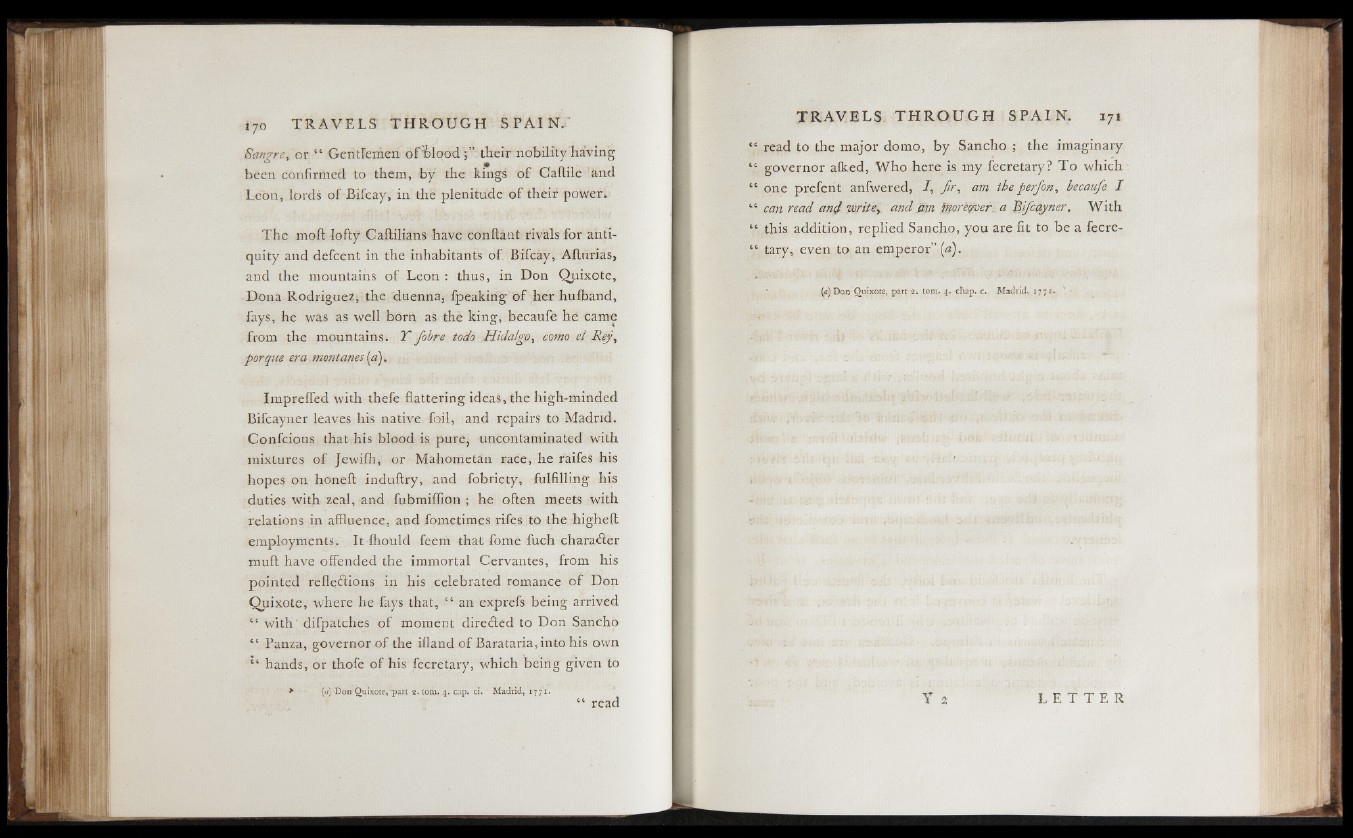
Sangre, or “ Gentlemen of'fclood their nobility having
been confirmed to them, by the kings of Caitile and
Leon, lords of Bifcay, in the plenitude of their power*
The mod lofty Caftilians have conftant rivals for antiquity
and defcent in the inhabitants of. Bifcay, Aiturias,
and the mountains o f Leon : thus, in Don Quixote,
Dona Rodriguez; the duenna, fpeaking o f her hufband,
fays, he was as well born as the king, becaufe he came
from the mountains. T fobre todo Hidalgo, como el Rey,
porque era montanes[a).
Impreifed with thefe flattering ideas, the high-minded
Bifcayner leaves his native foil, and repairs to Madrid.
Confcious that his blood is pure, uncontaminated with
mixtures of Jewiih, or Mahometan race, he raifes his
hopes on honeft induftry, and fobriety, fulfilling his
duties with zeal, and fubmiflion ; he often meets with
relations in affluence, and fometimes rifes to the higheft
employments. It ihould feem that fome fuch character
muff have offended the immortal Cervantes, from his
pointed reflections in his celebrated romance o f Don
Quixote, where he fays that, “ an exprefs being arrived
“ with difpatches of moment direCted to Don Sancho
“ Panza, governor o f the ifland of Barataria,into his own
“ hands, or thofe of his fecretary, which being given to
> {a) Don Quixote,*part 2. tom. 4. cap. ci. Madrid, 1771.
f| read
read to the major domo, by Sancho ; the imaginary
governor aiked, Who here is my fecretary? T o which
one prefent anfwered, I , fir, am the perfon, becaufe I
can read and Voritey and jam fyorbfoer. a Bfcqyner. With
this addition, replied Sancho, you are fit to be a fecretary,
even to an emperor” («).
(a) Don Quixote, part 2. tom. 4. chap. c. Madrid, 1771.